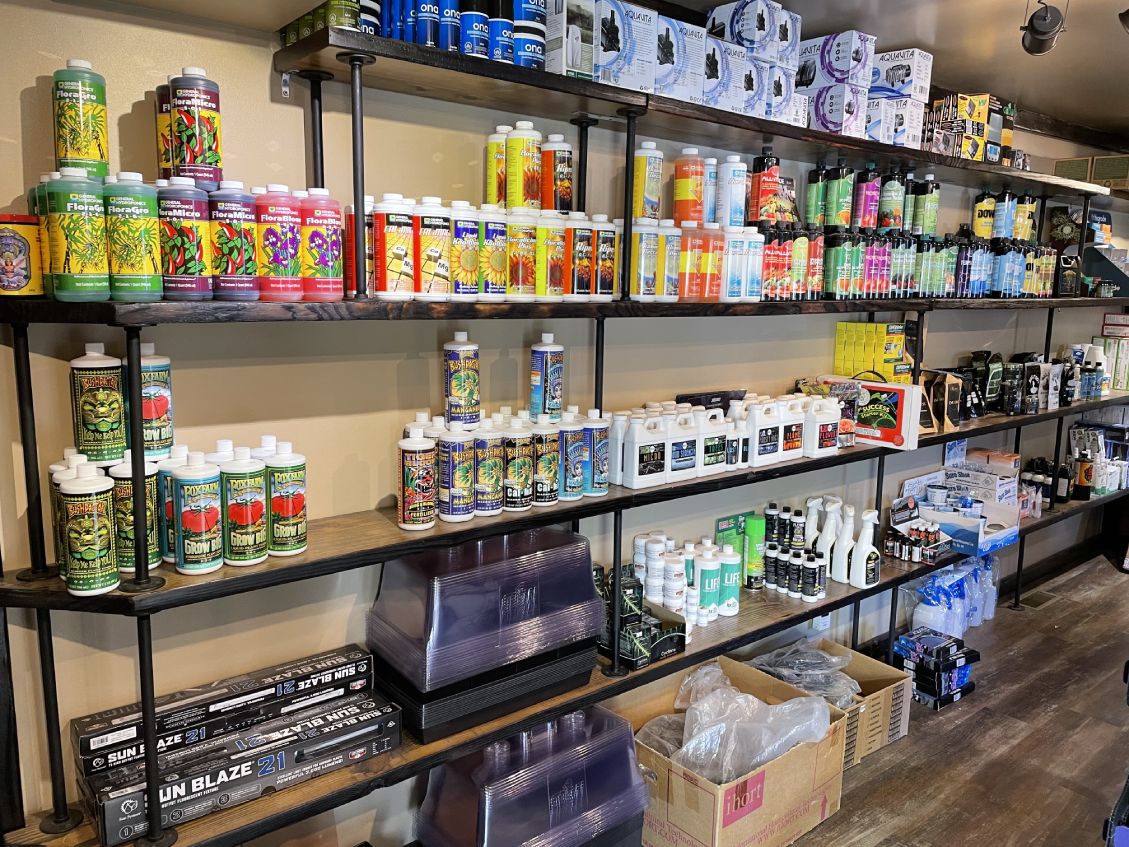Master the Art of Planting with The Indoor Earthworm's Proficiency
Master the Art of Planting with The Indoor Earthworm's Proficiency
Blog Article
Enhance Your Horticulture Skills With Hydroponics: Discovering Benefits
The technique of growing plants without soil may seem non-traditional at first, but its advantages are worth taking into consideration. As we dig into the world of hydroponic horticulture, we reveal a myriad of advantages that not just improve plant growth yet also offer one-of-a-kind opportunities for individuals looking to raise their gardening skills.
Advantages of Hydroponic Horticulture
Hydroponic gardening uses many advantages as a result of its efficient use sources and precise control over plant growth conditions. By offering plants with direct accessibility to nutrients liquified in water, hydroponic systems get rid of the need for dirt, lowering water use by up to 90% contrasted to conventional soil-based cultivation. This reliable nutrient delivery method also permits faster plant growth prices and higher returns, making hydroponic gardening an appealing choice for optimizing limited space and resources.
In addition, the controlled atmosphere of hydroponic systems enables farmers to maximize variables such as ph, moisture, and temperature levels, resulting in healthier plants with lowered danger of parasites and illness. This exact control over expanding problems not just advertises much faster and extra regular plant growth but additionally permits year-round cultivation no matter of external weather.
Faster Plant Development With Hydroponics
Utilizing sophisticated nutrient distribution systems, hydroponic gardening promotes increased plant growth rates contrasted to traditional soil-based cultivation techniques. In hydroponic systems, plants have direct accessibility to crucial nutrients liquified in water, enabling optimum absorption without the demand to use up energy developing substantial root systems to look for nutrients in the soil. This reliable nutrient distribution device makes it possible for plants to reroute their energy towards robust vegetative development and respected fruiting or blooming.
Additionally, the controlled atmosphere in hydroponic setups guarantees that plants obtain the ideal conditions for growth regularly. Elements such as temperature, moisture, light, and pH levels can be diligently kept an eye on and changed to produce the optimal growing setting for each plant selection. By eliminating the variability present in soil-based horticulture, hydroponic systems give plants with a secure and beneficial setting that maximizes their growth capacity.

Water Preservation Advantages
Given the effective nutrient delivery system and regulated setting of hydroponic systems, one substantial advantage worth discovering is the conservation of water sources. Hydroponic horticulture utilizes up to 90% less water compared to standard soil-based horticulture approaches. This significant reduction is credited to the closed-loop system where water is recirculated and recycled, lessening wastage. In conventional dirt gardening, water is lost with evaporation, overflow, and percolation beyond the root zone, resulting in inadequacies. Nonetheless, in hydroponics, the nutrient service is delivered straight to the plant roots, ensuring ideal water uptake and lowering water loss.
Additionally, hydroponic systems enable exact control over water usage, with the capacity to monitor and readjust nutrient degrees based on plant requirements. This targeted strategy stops overwatering, an usual problem in find more information soil-based gardening, further adding to water conservation initiatives. By making best use of water effectiveness and decreasing waste, hydroponic gardening emerges as a eco-friendly and lasting choice for people seeking to minimize their water consumption in horticulture methods.
Year-Round Plant Cultivation

By regulating aspects such as temperature level, nutrient, and light levels, hydroponic systems allow plants to flourish regardless of exterior climate condition. This constant environment permits for official statement continual plant development and harvest, offering a dependable supply of fresh fruit and vegetables even in the dead of winter months.
Furthermore, the capability to grow plants year-round in hydroponic systems opens up chances for farmers to experiment with a larger selection of crops, broaden their expanding seasons, and boost general productivity. This versatility and reliability make year-round plant cultivation in hydroponics an important device for both enthusiasts and business farmers aiming to optimize their horticulture initiatives.
Enhancing Horticulture Abilities With Hydroponics
Creating effectiveness in hydroponics can equip garden enthusiasts with a deeper understanding of plant growing methods and boost their general gardening skills. Hydroponic systems offer a controlled atmosphere where garden enthusiasts can closely check and adjust variables such as nutrient degrees, pH equilibrium, and lighting problems to optimize plant development. By understanding these components, gardeners can tweak their skills and knowledge, causing even more successful harvests and much healthier plants.
Moreover, hydroponic gardening challenges standard concepts of soil-based growing, encouraging gardeners to believe outside package and explore ingenious expanding techniques. This trial and error can promote creative thinking and analytic abilities, as garden enthusiasts find out to adapt and repair issues unique to hydroponic systems. Additionally, the performance of hydroponic setups, such as vertical yards or nutrient film methods, can show garden enthusiasts how to make best use of space and resources efficiently.
Verdict
In conclusion, hydroponic gardening provides many advantages such as faster plant growth, water preservation, and year-round farming. By discovering the advantages of hydroponics, individuals can improve their gardening abilities and achieve successful plant development. Consider integrating hydroponic methods right into your gardening practices to make the most of efficiency and performance in your yard.
As we dig right into the globe of hydroponic horticulture, we discover a variety of benefits that not only boost plant development yet likewise offer distinct chances for people looking to raise their gardening abilities.Using advanced nutrient delivery check my blog systems, hydroponic horticulture helps with sped up plant development prices compared to traditional soil-based growing approaches. By getting rid of the variability present in soil-based gardening, hydroponic systems provide plants with a positive and steady setup that optimizes their growth potential.
Enhancing the sustainability and efficiency of horticulture techniques, year-round plant cultivation in hydroponic systems offers a reliable and regular approach for cultivating a selection of crops regardless of seasonal constraints. The Indoor Earthworm.In conclusion, hydroponic gardening provides numerous advantages such as faster plant growth, water conservation, and year-round cultivation
Report this page